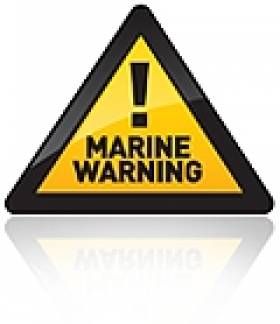Displaying items by tag: rainfall
Coastal Areas Braced for Flood Risk Tonight
A combination of high tides, high winds and low pressure increase the possibility of coastal flooding, particularly at high tide around midnight on Sunday 7 November and midday on Monday 8 November.
A deep low pressure centre is expected to move down across Ireland tonight, clearing away slowly during Monday. This weather system has the potential to bring some severe weather to Ireland. Rainfall totals are likely to reach 25mm - 30mm in places during Sunday and Monday. While not excessive, this rain may lead to some localised flooding on roads. The strongest winds associated with this weather system are likely to be well to the west of Ireland; however if the track of the low pressure is further east than currently expected, then these very strong winds may possibly affect our west coast.
The principal dangers from this weather system will be due to very high seas off the southwest and west coast (waves approaching 9m) and coastal flooding due to a combination of high tides, very low pressure, storm surge and onshore winds. The danger period extends through Sunday night and, for the east coast, much of Monday also. Valid from: 12hrs Sunday Nov 7th To: 06hrs Tuesday Nov 9th.
Householders, property owners, motorists and pedestrians are warned that there is a risk of coastal flooding in Dublin in the next 36 hours according to a Dublin city council update issued last night.
More from Cork City Council HERE
More from Dublin City Council HERE






























































